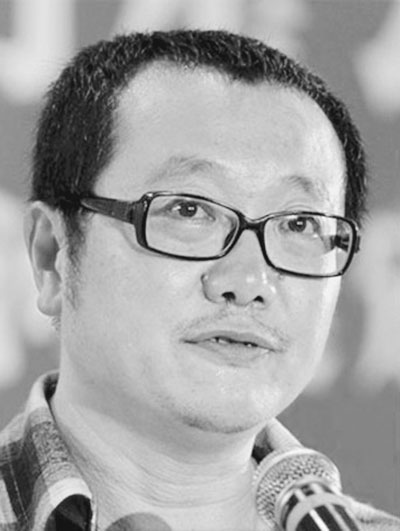 CHINESE writer Liu Cixin has become the first Asian author to win the Hugo Award for best novel, receiving the 2015 honor for his book “The Three-Body Problem.” The prize was announced by astronaut Kjell Lindgren in a live feed from the International Space Station on Sunday. In a telephone interview with Xinhua, Liu said he was “very happy” about the accolade but “will treat the award with a humble attitude and won’t get overwhelmed.” Liu said the accolade would boost the export of Chinese sci-fi works to the United States and help Americans better understand Chinese sci-fi, but he refrained from overestimating its boost to China’s sci-fi writing. “Science fiction writing across the world is on the decline, which I assume is because technology is losing its mystery while mystery is an important backbone of sci-fi composition,” he said. The “Three-Body Problem” is the first book in his sci-fi trilogy, which is about human responses to alien invasions. The books were originally serialized in a Chinese magazine between 2006 and 2010. A movie adaptation of “The Three-Body Problem,” which was also nominated for the 2014 Nebula Award for best novel, is now in production and expected to hit screens in July next year. Ken Liu, the novel’s English translator, received the Hugo Award at a ceremony in Spokane, Washington, on Saturday and delivered a speech on behalf of the author. Few translated sci-fi novels enter the U.S. market, let alone win the Hugo Award, he said. Liu Cixin acknowledged the work of the translator in his interview with Sina. “We won the award together,” he said. Yao Haijun, chief editor of Science Fiction World, China’s largest sci-fi magazine, believes the award marks a historical breakthrough for Chinese sci-fi. He expects the start of an “equal exchange” between Chinese and English sci-fi to change the largely one-way introduction of English works into China. “Moreover, even though Liu created this miraculous work several years ago, we had little confidence back then. This prize will help us reevaluate our sci-fi,” he told Xinhua. Liu, 52, who used to work as a software engineer at a power plant in Shanxi Province, has written 13 books. In April, he was appointed by IT giant Tencent as its mobile games imagination architect. Published in China between 2006 and 2010, the trilogy has been hailed as the best Chinese sci-fi series, with over 1 million copies sold in China. But its first book was not translated into English until 2014. “The Dark Forest,” the second installment of the saga, became available in the United States earlier this month, and the translated version of the last one, “Death’s End,” is expected to hit shelves next year. Amazon, the e-commerce site, has included “The Three-Body Problem” in its list of “best books of 2015,” which is based on reviews.(SD-Agencies) | 
